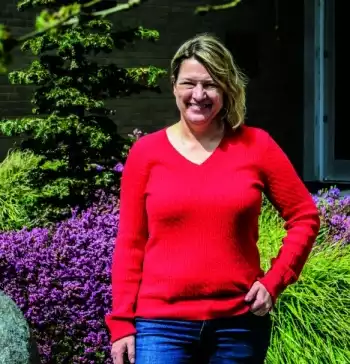Team Activities
Individual Accomplishments
Teresa Adams
I have:
- Begun implementing metacognitive strategies in all my class. I have included in all my CANVAS shells information about metacognition.
- Shared my experiences with other faculty, in our fall workshop
Next steps: Integrate metacognitive STEM projects into my math class to make the math relevant to student's degree pathways and add them to the STEM institute.
Karen Goodwin
I have:
- Begun using a variety of new (to me) metacognitive strategies in my teaching. I actually gave a lecture specifically on metacognition and study skills to my Gen Chem students.
- Worked on sharing my experiences with other faculty, in our fall workshop and in a continuing CANVAS group
- Set up a STEM Institute CANVAS page to support our students by providing a place to collaborate and other resources.
Next Steps: Further develop the STEM institute.
Michelle Harris
I have:
- Implemented metacognitive strategies into all my classes to support the success of all students.
- Added online active learning techniques to broaden online participation.
- Worked to provide multiple learning resources to students STEM students to facilitate transfer and career pathways
Next steps:Host more faculty workshops to develop a repository for active learning and metacognitive resources.
Team Accomplishments
Strengthening our Department/Program
Accomplishments/Action Plan:
- Examined the advising system for proper placement into math and STEM courses in order to increase student course completion in STEM
- Increased the use of metacognitive techniques by hosting a workshop in order to increase STEM defined majors by 5% over the next year and retain those STEM majors between first and second year
- Started a STEM institute cohort to allow students a sense of community and accountability and to retain STEM majors between the first and second year.
Next Steps: Specifically look at retention rate for students placed into developmental math vs. those placed directly into pre-calc or higher upon admission. Survey both cohort and non-cohort students before, during, and after their first year participating in the STEM institute cohort.
Developing out Campus Community
Engaging our Colleagues:
- In our workshop in which we had 32 participants, our goal was to show our colleagues how to diagnose student study methods for effectiveness and metacognition. We also described metacognition and the self-regulated learning cycle while discussing metacognitive strategies to embed in classes.
- "We shared many exciting ideas, many of which have immediate applicability. Realistically, the vast majority of what our students should be learning in community college, is how to learn"
Next Steps:We have developed a Canvas page for our colleagues to share their ideas and we will continue to host workshops
Team Members

Michelle Harris
Michelle has developed three new geology courses at Centralia College, and currently heads their department's seminar speaking series. She participated in the NSF School of Ice in 2019. She led a hike to the summit of Mount St. Helens in 2019 and will get to guide a hike into the crater in 2020. She was a convener and host of the 2019 SAGE 2YC workshop Metacognitions - Making Every Teaching Activity Centered On Giving New Instructional Tools Inspiring Our Nations Students.
Courses
Michelle teaches teaches Introduction to Geology, Natural Hazards and Disasters, Historical Geology, Survey of Earth Science, and Earth's Surface Processes.

Karen Goodwin
Karen's research interests are focused in Green Chemistry, specifically in adapting traditional laboratory methods to greener alternatives while maintaining their purpose as teaching tools. In 2019 she was awarded a $50,000 grant to purchase a Nuclear Magnetic Resonance Spectrometer for her department. In 2016 she won the Exceptional Faculty Award from the Centralia College Foundation. Karen is the founder and facilitator of the student research Capstone Projects, which provide research experiences for her students. Karen is the Treasurer of the Washington College Chemistry Teachers Association (WCCTA) and was the 2017 Chair of the Puget Sound Section of the American Chemical Society.
Courses
Karen teaches General Chemistry, Organic Chemistry, and Preparatory Chemistry, a recently added course.

Teresa (Teri) Adams
Teri worked with the Dana Center on introducing co-requisite math classes across the country.
Courses
Teri teaches Pre-calculus, Calculus, Statistics, Linear Algebra, and Differential Equations.
Institution
Centralia College serves 5,000 students annually from its campus midway between Seattle WA and Portland, OR. Half of its students are 25 or older while 14% are under 18 years old. Seventy-one percent are enrolled in at least one distance education course.
Program/Departments
Geology program: There is one full-time faculty in the Geology program and an Emeritus Professor of geology.
Science Department: The science department is in the Division of Arts and Sciences and has 8 full-time faculty.
Math Department: 3 full time faculty and 1 - 2 adjunct faculty in the Math program teach 360 students per year. Math is part of the Division of Arts and Science.
Chemistry program: There are two full-time faculty in chemistry.
Institutional demographic data is from IPEDS the Integrated Postsecondary Education Data System, U.S. Department of Education, typically for the 2018-19 year as available.